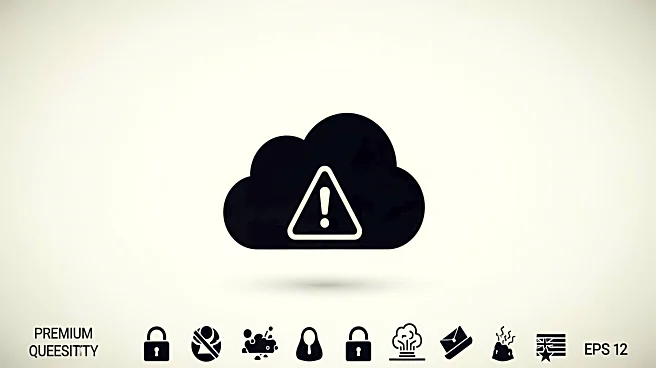What's Happening?
A recent incident involving a Microsoft OneDrive user has highlighted the risks associated with relying solely on cloud storage for data backup. The user, who had consolidated 30 years of photos and work onto OneDrive, found their account locked without
explanation, rendering their data inaccessible. This situation underscores the importance of maintaining multiple backups of important files. Traditionally, it was advised to have data backed up in two separate locations to prevent loss from theft, fire, or other disasters. However, the convenience and reliability of cloud services have led many to rely on them as their primary backup solution, often neglecting additional safeguards.
Why It's Important?
The incident serves as a cautionary tale for individuals and businesses that depend heavily on cloud storage solutions. While cloud services offer convenience and accessibility, they are not infallible. Account lockouts, service outages, or data breaches can result in significant data loss if no alternative backups are available. This highlights the need for a comprehensive data management strategy that includes multiple backup solutions. The potential impact on businesses could be severe, affecting operations, customer trust, and financial stability. For individuals, losing personal data such as photos and documents can be emotionally distressing and irrecoverable.
What's Next?
Users are encouraged to review their data backup strategies and ensure they have multiple copies of important files stored in different locations. This could involve using external hard drives, additional cloud services, or other secure storage solutions. Companies providing cloud services may also need to improve transparency and communication regarding account issues to prevent similar incidents. As awareness of these risks grows, there may be increased demand for more robust and user-friendly backup solutions, prompting innovation and competition in the data storage industry.
Beyond the Headlines
This incident raises broader questions about data ownership and control in the digital age. As more personal and professional data is stored online, users must navigate the balance between convenience and security. The ethical implications of data accessibility and the responsibilities of service providers in safeguarding user data are likely to become more prominent in discussions about digital rights and privacy.















